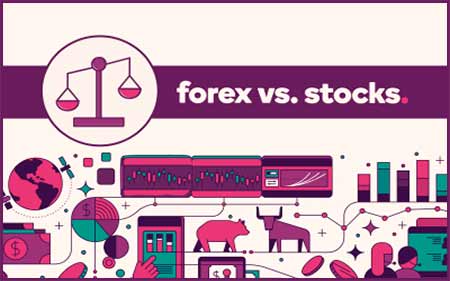What makes people invest in forex despite the risks?

Visitors: 1087
Forex is a big hit on the internet. Investing in Forex comes with a high risk of capital loss. But what then can push some to "trade" on Forex, despite repeated warnings from supervisory authorities (AMF, ACPR)?
Very speculative currency market
Forex (currency market) refers to the dematerialized version of the foreign exchange market (we don't buy physical currency there like we do in a bank). This is an "over-the-counter" (unregulated) market where financial instruments (exchange contracts) are traded, which are based on the exchange rates of various currencies. It is the players in this market (mainly bank traders) who set the prices for the currency among themselves 24 hours a day.
In Forex, investors from all over the world (especially professionals and amateurs working through specialized sites) speculate on the evolution of the exchange rate of convertible currencies (exchanged among themselves). Thus, the US dollar can be exchanged for the euro at an exchange rate that is constantly changing. And vice versa.
The third part of the transactions (known as "spots") is associated with the purchase / sale of currency at the instantaneous rate. But in Forex it is primarily a matter of opening a long-term position for:
insure against future currency risks (many companies intervene directly in forex for this purpose: they always buy dollars at a certain price in euros in x days, months. );
speculate on the future evolution of the price of one currency against another (hedge funds and banks acting in their own name, individuals).
8 reference currencies, led by the dollar
There are no intermediaries in this Forex market. All you have to do is open an account with an online broker and then download the trading platform. After completing these technical steps, the investor is immersed in the foreign exchange market, where he directly makes his transactions (exchanges).
The market works in currency pairs: for example, the euro and the US dollar (EURUSD). Trading a pair of these currencies involves buying one while selling the other.
Forex financial instruments refer to the following 8 reference currencies: US dollar, euro, pound sterling, Japanese yen, Swiss franc, Canadian dollar, New Zealand dollar and Australian dollar (major currency pairs: EURUSD, GBPUSD, USDJPY, USDCHF).< /p>
In the EURUSD pair, the euro is the base currency, and the dollar is the counter currency. The base currency is evaluated in relation to the counterparty, this is what allows you to fix the Forex quote (indicates how many dollars you need to buy euros and how much euros cost in dollars).
It is the growth of one currency in relation to another (or vice versa its depreciation) that can ultimately allow the trader to make a profit, although in practice it is extremely rare to make a profit. Specifically, the trader undertakes to buy or sell such a currency in the future at such a price (thanks to derivative products: swaps, currency options). Depending on the evolution of the currency, it will be the winner or loser of the trade. All he has to do is choose the amount of his investment, knowing that if he guesses the market incorrectly, he will lose his entire bet.
Leverage: be careful!
It is the lever associated with the trade that multiplies the profit or loss. For example, if the leverage is 100 and the loss on the trade is 1%, the trader will lose 100% of their initial investment.
In order to try to minimize risks, it is better to understand what drives the foreign exchange market, a reflection of the economy of a country or region (euro). They are both financial instruments and indicators. But speculation sometimes makes a big difference.
Very risky investment
In addition to the leverage effect, investing in Forex comes with significant risks to consider:
The foreign exchange market is a very volatile market and, above all, unpredictable because it is subject to global political and economic fluctuations, which may lead some traders to financial risks. beyond the limits they set for themselves. If these changes cannot be accurately foreseen, the risk of loss of capital becomes especially high, even inevitable.
Sometimes real online scams occur, many websites pretend to be approved resellers but offer their services to individuals online without any permission. For example, they promise investors to recover amounts lost on unauthorized sites in exchange for personal data. This is why AMF maintains a black list of Forex sites not authorized in France (1) .
We have compiled for you a list of unscrupulous brokers, , with reviews on which you can find on our website.


Comments 0